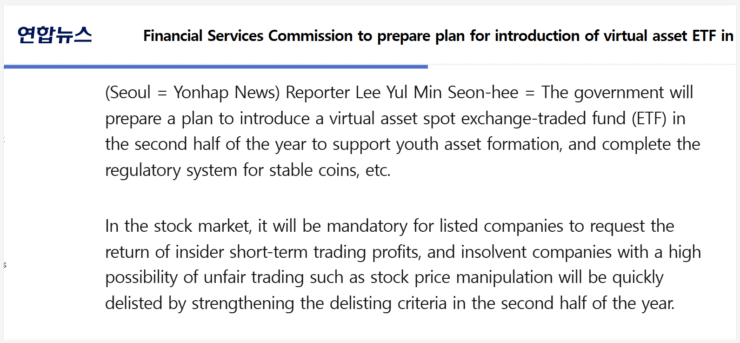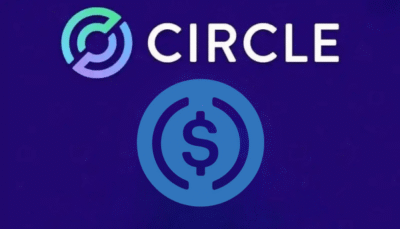South Korea’s top financial regulator is preparing to legalize domestic spot crypto ETFs, in a move that would significantly reshape the country’s financial landscape. On Thursday, the Financial Services Commission (FSC) submitted a formal roadmap to the Presidential Committee on Policy Planning, outlining steps to approve crypto-backed exchange-traded funds as early as the second half of 2025, according to local reports.
The submission aligns with President Lee Jae-myung’s campaign pledge to lift restrictions on crypto investment vehicles. For years, South Korean regulators classified cryptocurrencies as high-risk assets, barring ETF issuances due to concerns about market volatility. However, the FSC’s latest roadmap suggests a strategic pivot — one that seeks to keep pace with global ETF trends and respond to growing investor demand at home.

If enacted, the reforms would bring South Korea in line with leading jurisdictions like the U.S. and Hong Kong, where crypto ETFs have already gained ground. The initiative marks a significant shift in the country’s historically cautious approach to digital assets.
KRW-Pegged Stablecoins Also on the Regulatory Horizon
In addition to crypto ETF legalization, South Korea is also advancing plans to permit stablecoins backed by the Korean won. Local reports confirm that the FSC’s roadmap proposes lifting the ban on KRW-pegged stablecoins by late 2025 — a move seen as key to keeping capital within the country and reducing reliance on foreign stablecoins.
The proposal supports President Lee’s wider digital finance strategy, which emphasizes modernizing South Korea’s financial infrastructure and improving access to wealth-building tools, particularly for younger citizens. A domestic stablecoin market could also provide new rails for digital payments, remittances, and savings products.
While the FSC clarified that its proposals remain under review, the public disclosure is viewed by analysts as a strong signal of the administration’s pro-crypto stance and intent to reform legacy financial regulations.
Institutional Access and Exchange Reforms Also in Play
South Korea’s broader financial reform agenda doesn’t stop at ETFs and stablecoins. The FSC is currently rolling out a phased approval system to let institutional players participate more directly in the crypto market — a move that could attract large-scale capital and lend greater legitimacy to the asset class.
Beyond crypto, regulators are exploring potential changes to traditional financial markets. One proposal under review is the extension of trading hours on the Korea Exchange, which could expand from 6.5 hours to 12 hours per day. The idea is to improve global competitiveness and align with longer trading windows seen in markets like the U.S. and Japan.
These combined efforts reflect a wider modernization push aimed at transforming South Korea into a digital finance leader in Asia.
A Maturing Market with Massive Crypto Exposure
Despite previous regulatory skepticism, South Korea remains one of the most active crypto markets in the world. As of late 2024, domestic investors were estimated to hold more than 104 trillion won (approximately $75.7 billion) in digital assets. That level of adoption, coupled with rising institutional interest, makes the country a prime candidate for expanded crypto infrastructure.
With the FSC’s evolving stance and the administration’s backing, South Korea could soon become a key player in shaping how digital assets are regulated and integrated into mainstream finance.
Quick Facts
- FSC submitted roadmap for crypto ETF approval to policy board.
- Plan includes lifting the ban on KRW-pegged stablecoins.
- Institutional access to crypto markets is being phased in.
- Korea Exchange may extend trading hours to boost competitiveness.





